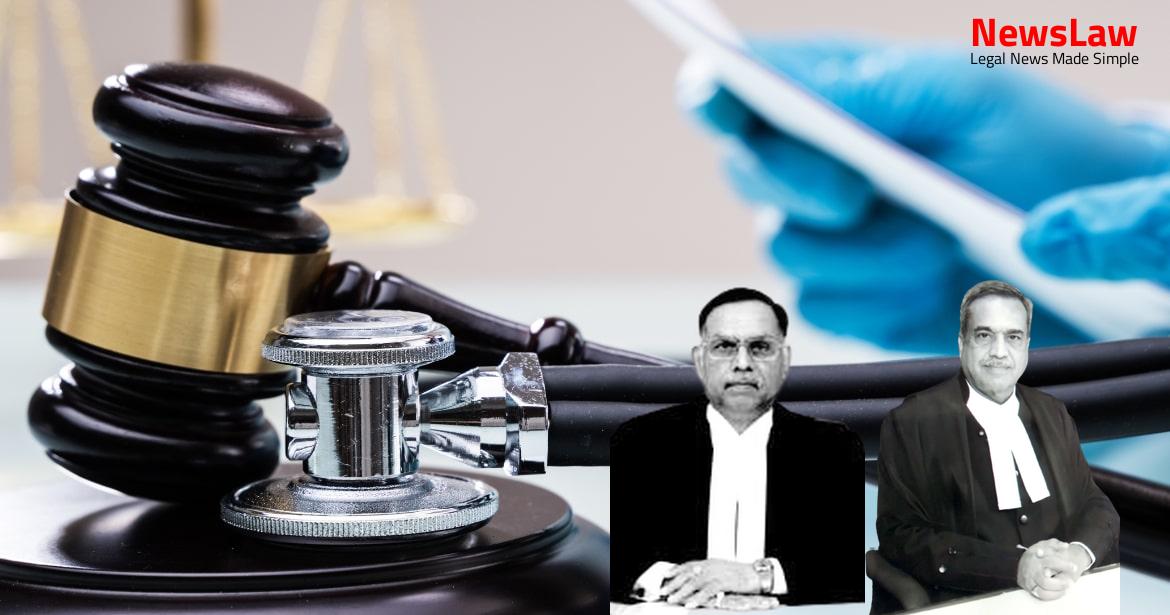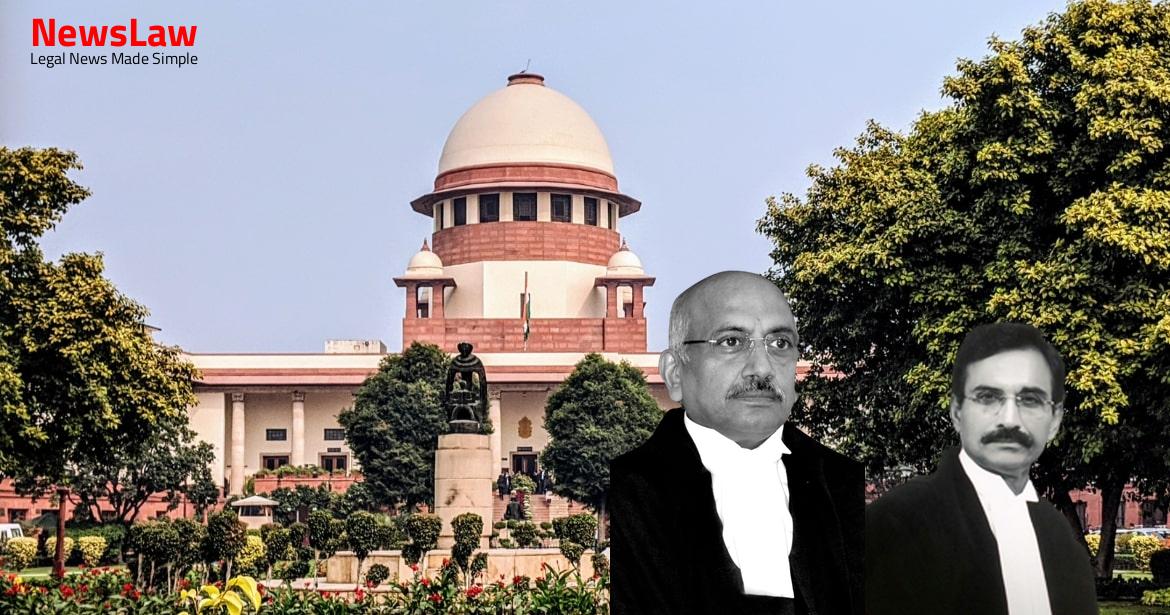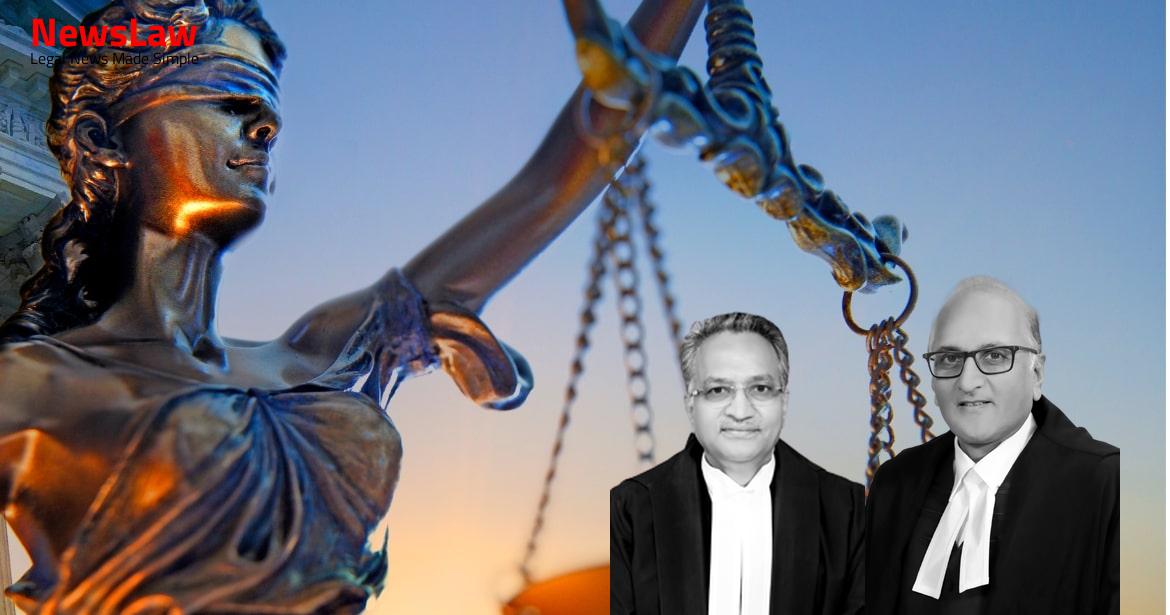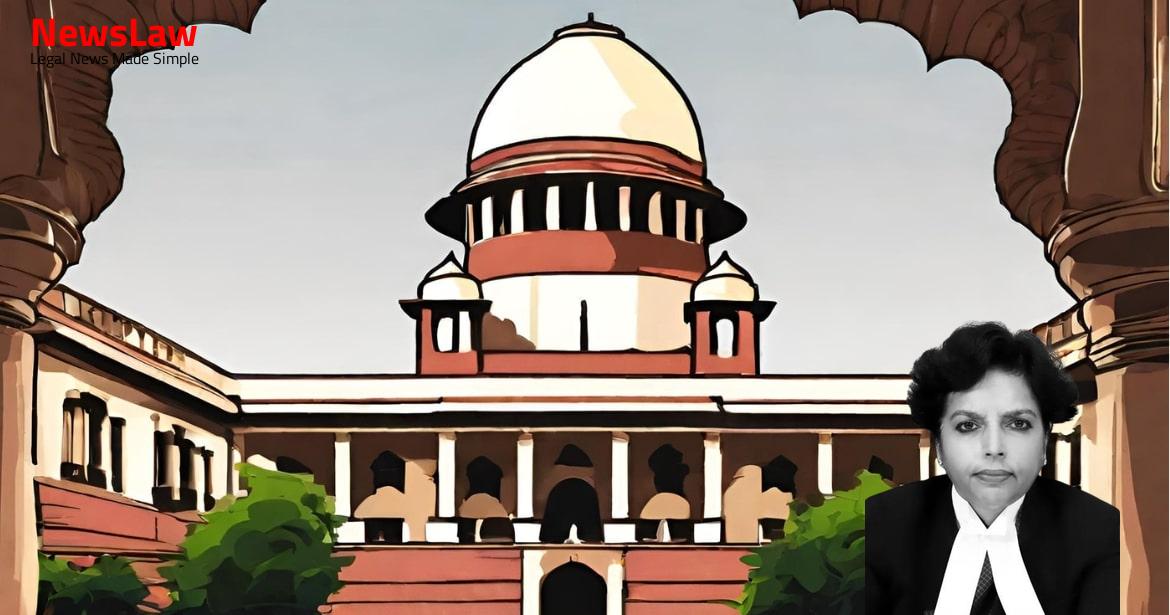In the case of Eicher Motors Ltd. vs. Union of India, the appellant contested the disallowance of deductions under Section 43B of the Income Tax Act for unutilized MODVAT credit and Sales Tax Recoverable Account. The Assessing Officer and the Commissioner of Income Tax rejected the appellant’s claims, leading to appeals filed under Section 260A of the Income Tax Act. The High Court upheld the decisions of the ITAT against the appellant. Find out more about this complex tax deduction case involving Excise Duty and MODVAT credits.
Facts
- The assessee, a Company engaged in manufacturing automobiles, claimed deduction under Section 43B of the Income Tax Act for unutilized MODVAT credit and Sales Tax Recoverable Account.
- Assessing Officer disallowed the deductions, upheld by Commissioner of Income Tax and High Court of Delhi.
- ITAT ruled that advance payment of Excise Duty representing unutilized MODVAT credit without actual liability is not allowable under Section 43B.
- Assessment orders for the year 1999-2000 disallowed deductions of Rs. 69,93,00,428/- and Rs. 3,08,88,171/-.
- ITAT and High Court’s decisions were against the assessee, resulting in appeals filed under Section 260A of the Income Tax Act.
- Appellant’s business involves manufacturing automobiles subject to Excise Duty, using excisable raw materials and inputs.
- The High Court affirmed the views of the Income Tax Appellate Tribunal
- The Assessing Officer and the Commissioner of Income Tax (Appeals) did not accept the appellant’s claim
Also Read: Interpretation of Lease Agreement and Compulsory Registration
Issue
- The two issues in the appeal are regarding the disallowance of MODVAT credit of Excise Duty and Sales Tax Recoverable Account under Section 43B of the Income-tax Act.
- The questions answered by the High Court in favor of the Revenue were related to the disallowance of MODVAT credit and Sales Tax Recoverable Account.
- The appeal was based on whether the ITAT had erred in upholding the disallowance of Rs. 69,93,00,428 representing unutilized MODVAT credit and Rs. 3,08,99,171 in respect of Sales Tax Recoverable Account.
- The High Court’s framing of the questions focused on the errors of law made by the ITAT in upholding the disallowances.
Also Read: Enhancing Compensation and Modifying Sentences: A Legal Analysis
Arguments
- Payments made by the assessee to suppliers should be treated as payments of Excise Duty for deduction under Section 43B.
- The assessee’s Excise Returns show the full utilisation of MODVAT credit in April 1999.
- The amount paid by the assessee to suppliers is accepted as Excise Duty under Central Excise Act and Rules.
- The assessee becomes entitled to avail of MODVAT credit as soon as raw materials and inputs are received in their factory.
- The assessee was entitled to deduction of unutilised MODVAT credit balance as on 31.03.1999.
- The 1 proviso to Section 43B covers the questions in favor of the assessee.
- The object of Section 43B is to ensure deduction only when the amount has been received by the Government.
- The full amount of Excise Duty was paid to the Government when raw material/inputs were supplied to the assessee.
- The assessee is entitled to deduction under the 1 proviso to Section 43B.
- Excise Duty becomes due and payable only when the assessee removes the finished product from the factory gate.
- Incidence of Excise Duty shifts from the manufacturer to the purchaser, but liability remains with the manufacturer.
- Assessee is not liable to pay Excise Duty on raw materials/inputs.
- Liability to pay Excise Duty is incurred on the removal of finished goods in the subsequent year.
- Deduction under Section 43B is allowable only when tax amount is due and payable and actually paid by the assessee.
- Assessee is entitled to utilize MODVAT credit towards payment of Excise Duty.
- Liability to pay Excise Duty under Central Excise Act is only on the manufacture of excisable goods.
Also Read: Exemption from Property Tax for Central Government-owned Buildings
Analysis
- The appellant claimed deduction for the sum of Rs.5,85,87,181/- as duties actually paid during the relevant year.
- The taxable event for Excise Duty is the manufacture and production of excisable articles.
- The scheme under Section 43B allows deduction for sums payable by the assessee by way of tax, duty, and cess that have actually been paid.
- The liability to pay Excise Duty on vehicles was adjusted in the assessment year under the MODVAT scheme.
- The unutilised credit under the MODVAT scheme does not qualify for deductions under Section 43B.
- The appellant debited sales tax against its liability on sales of finished goods like cars.
- Facility of credit for Excise Duty paid is considered equivalent to tax paid as per previous rulings.
- Provisions of Section 43B require actual payment of Excise Duty by the assessee to qualify for deduction.
- Central Excise Rules define the liability of the assessee for payment of Excise Duty.
- The unutilised credit in the MODVAT scheme cannot be treated as a sum actually paid by the appellant.
- The appellant was entitled to adjust the unutilised MODVAT credit against the payment of Excise Duty on its manufactured vehicles.
- The proviso under Section 43B allows for sums actually paid before the due date for return filing to be considered for deduction.
- The High Court correctly ruled on the issue regarding the applicability of deductions under Section 43B.
- The sales tax paid by the appellant was debited to a separate account and does not qualify as a sum payable by the assessee for deduction purposes.
- The MODVAT credit standing to the credit of the assessee was Rs. 69,93,00,428/- as of 31.03.1999.
- The accumulation of MODVAT credit was a result of payment of Excise Duty on raw materials and inputs supplied to the assessee by its suppliers, as reflected in the invoices.
- Rule 57-F(4-A) stated that any unutilized credit of specified duty with a manufacturer of tractors or motor vehicles on the 16th day of March, 1995, would lapse and could not be used for payment of duty on excisable goods, except for credits in inputs or finished products in stock on that date.
- The Court interpreted Rule 57-F(4-A) to mean that the right to credit becomes absolute when the inputs are used in manufacturing the final products.
- The Court concluded that the new scheme introduced cannot be applied retroactively to goods that had already been manufactured and utilized under the earlier scheme.
- The appellant-assessee claimed deduction of the entire sum of Rs.5,85,87,181/- as duties actually paid during the relevant year.
- The Tribunal referred a question to the High Court regarding the assessee’s claim for deduction of excise and customs duties.
- The High Court answered the question in favor of Revenue against the assessee.
- The ITAT also referred to the judgment in Berger Paints India Ltd. case and Dai Ichi Karkaria Ltd. case.
- The manufacturer obtains credit for Excise Duty paid on raw material used in production immediately upon declaration and acknowledgment.
- Eicher Motors Ltd. vs. Union of India highlighted that credit under MODVAT Scheme is equivalent to tax paid.
- The assessee relied on the judgment of the Gujarat High Court in Lakhanpal National Ltd. Vs. ITO for their claim.
- The Commissioner of Income Tax held that the assessing officer incorrectly relied on the Gujarat High Court judgment in Lakhan Pal National Ltd. case.
- The Tribunal distinguished the Gujarat High Court’s judgment in Lakhanpal National Ltd.’s case and confirmed the Commissioner of Income-tax’s order.
- The Court referred to Rule 57-A(1) and Rule 57-F(1) to support its decision.
- The High Court ruled in favor of the Revenue and against the assessee-appellant on both questions.
- The appellant cannot claim the benefit of the proviso to Section 43B in this case.
- Shri Ganesh’s submissions on the proviso to Section 43B do not support the appellant’s claim.
Decision
- The appeals were dismissed due to lack of merit
- The court found no grounds to overturn the lower court’s decision
- All arguments presented by the parties were considered but not found to be valid
Case Title: MARUTI SUZUKI INDIA LTD. (EARLIER KNOWN AS MARUTI UDYOG LTD.) Vs. COMMISSIONER OF INCOME TAX DELHI (2020 INSC 150)
Case Number: C.A. No.-011923-011923 / 2018



